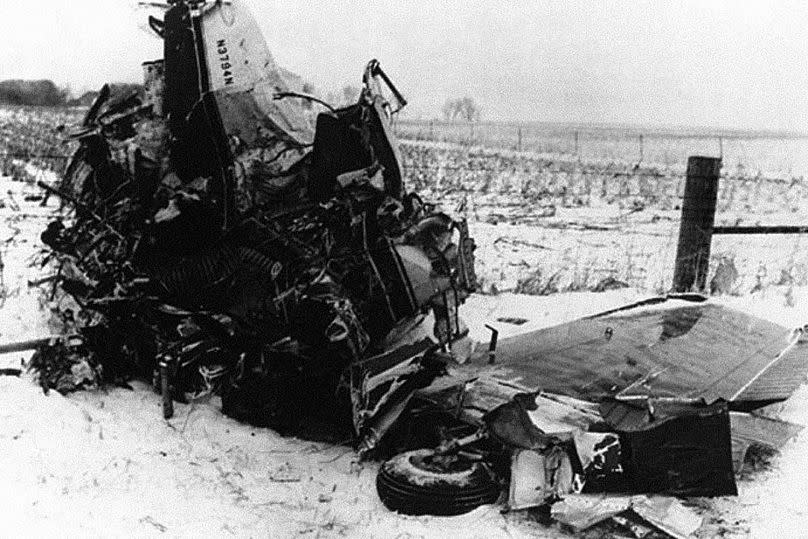Culture Re-View: The day the music died - how Buddy Holly's tragic death inspired 'American Pie'

3 February 1959: The Day the Music Died
“A long long time ago; I can still remember; How that music used to make me smile,” Don McLean sings opening one of the definitive songs of the 70s, ‘American Pie’. You’ve probably already got the tune in your head from just those opening lines.
“February made me shiver; with every paper I’d deliver,” McLean sings a few lines later. McLean is of course referring to a famous day, today in 1959. Featuring as the refrain at the end of every verse of ‘American Pie’ itt is, of course, “the day the music died”.
McLean recalls of this day in 1959. He was only 13 years old and already loved music. He’d taken a particular interest in the rock and roll pioneer musician Buddy Holly.
“I can't remember if I cried; When I read about his widowed bride”. Holly had rocketed to stardom as a teen. He’d played on stage with Elvis and had a string of his own hits including the emblematic ‘Peggy Sue’. In 1958 he married María Elena Santiago.
The marriage was only to last six months though, as on 3 February 1959, Holly was fatally injured travelling between venues for his latest tour with supporting artists, Ritchie Valens and "The Big Bopper" Jiles Perry Richardson Jr.
The three musicians boarded a private plane in Iowa. The three passengers and pilot Roger Peterson took off a little after midnight. Shortly after, the plane crashed killing all four people on board. Holly was 22. Valens was 17. Richardson Jr. was 28.
“But something touched me deep inside; The day the music died.”

The incident was a pivotal moment for the music industry. One of its brightest young stars had been taken so mercilessly, and for McLean it was a taste of a darkness that would define the next decade and his ascending musical career.
McLean would become one of the US’s most recognised songwriters, breaking out with his 1970 album ‘Tapestry’. True stardom came the following year with the release of his second album ‘American Pie’.
And it was with the lead single that McLean’s consistent refrain “the day the music died” popularised the nickname for the infamous plane crash. McLean’s use of American stereotype, depicting “good old boys” driving Chevys to levees and drinking rye whiskey as they become disillusioned with the American dream brought the events of 59 to the present day of 1971.
Over the 60s, pop music had forever shifted as The Beatles came onto the scene, which McLean refers to. “And while Lennon read a book on Marx; The quartet practised in the park; And we sang dirges in the dark; The day the music died.”
The Beatles track ‘Helter Skelter’ became a key piece of evidence in the trial around the Manson Family murders in 1969, a moment that symbolised the death of the 60s for many. It’s mentioned by name in the third verse. References to the Rolling Stones’ music also abound in the lyrics. As does McLean’s opposition to the Vietnam War.
On this day in 1959, a plane crashed killing three of music’s brightest stars. A decade later, it would be immortalised forever as a key part of rock music mythology by Don McLean.
As he sings: “And the three men I admire most; The Father, Son, and the Holy Ghost; They caught the last train for the coast; The day the music died.”

 Yahoo News
Yahoo News 
